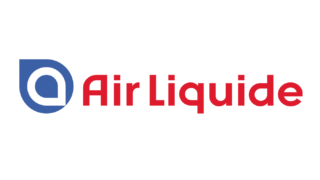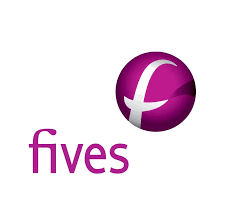-
Industrial Combustion training 18-19 March 2025
Starts at
-
-
Location
Industrial Combustion training 18-19 March 2025
-
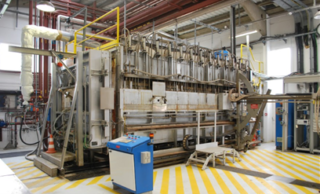
The IFRF and its French Committee will host an Industrial Combustion training on 18th-19th March 2025 at Air Liquide’s advanced testing facilities in France.
The training will begin with a comprehensive overview of combustion applications across various energy intensive industrial sectors, including cement, steel, glass, oil and gas, and energy production. Attendees will gain practical experience in all relevant aspects, with a focus on reducing CO2 emissions through the use of renewable fuels including hydrogen.
Participants will benefit from lectures given by experienced professionals from both industry and academia. The training includes two practical sessions: one with a laboratory burner from the CNRS CORIA laboratory, and another with the Air Liquide 2 MW pilot furnace, operating with natural gas and hydrogen with air and/or oxygen, for oxy-combustion.
The training will be limited to 20 participants, ensuring a focused and personalized learning experience.
Venue
Air Liquide Campus Innovation Paris, Jouy-en-Josas, France
Address: 1, chemin de la Porte des Loges, 78350 Les Loges-en-Josas
Lecturers for the course
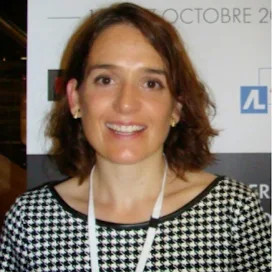
Anna Pubill Melsió is R&D Combustion Manager at Air Liquide Innovations Campus Paris. With 20 years of experience at Air Liquide, she started as a research engineer in ferrous and non-ferrous metals production applications, focusing on iron and copper making. She then joined the French subsidiary as a marketing manager for the transportation and metallic manufacturing markets, where she promoted the use of industrial gases and created new commercial offers, expanding the scope to Italy, Spain, and Portugal. For the past six years, she has been in charge of the R&D combustion team of 10 members, developing gas solutions for high-temperature processes. This team also supports the subsidiaries and provides the best solutions to customers to optimize their processes and aid them in the energy transition.
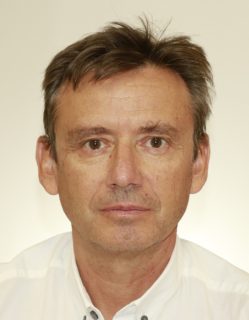
Louis Ricci is a professional in the domain of industrial combustion, currently serving as the R&D Director at Fives Combustion Business Unit. He coordinates R&D topics and decarbonation actions across the three brands of the Fives group: Fives North American Combustion, Fives Pillard, and Fives Itas, providing combustion systems in various industrial sectors. The necessity of energy transition presents new challenges, improving efficiency and reducing emissions in industrial processes, and he is proud to contribute to them, a key target for his company and the broader industry. He holds a Mechanical and Energy Engineering degree from Arts et Métiers Engineering School of Paris (1990) and an MBA. With over 25 years of experience in combustion, he has technical expertise in combustion and pyro processes and is the inventor of multiple combustion systems. His key positions include R&D Director at Fives Combustion Business Unit (since 2021), COO and CTO at Fives Itas (2016-2018), CTO at Fives Pillard (2007-2016), and R&D Director at CNIM Environment France (2019-2021).
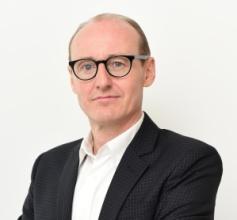
Luc Jarry is a Senior Expert in combustion processes and Market director for energy and mobility with Air Liquide’s World Business Line. With a Master’s degree in Energy and Engineering, and with more than 30 years of experience in industrial gas for industries such as the glass industry, Luc’s extensive experience in the development of technologies, management of related R&D and industrialization programs makes him an industry leader in the combustion field. He has led numerous multi-functional, global combustion projects, especially in oxy-combustion technologies. Luc has been granted 24 patents, published multiple times in industry journals, and was awarded the best innovative technology development application for “Climate Solutions” by COP21.
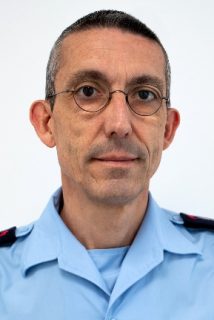
Laurent Lecomte has been a professional firefighter lieutenant-colonel at the Ecole Nationale Supérieure des Officiers de Sapeurs-Pompiers (ENSOSP) in Aix en Provence since 2012. He is currently head of the training center for management jobs and specialties. He is also responsible for the hydrogen and new energies risk mission at ENSOSP. He holds a DUT in Hygiene and Safety (IUT of Colmar) and a Master’s degree in Law, Economics, Management, Political Studies, Information Management, Specialty in Strategic Information Management (IEP Aix). A firefighter officer since 1993, he has held various jobs in the profession in the areas of management, operational command, organizational and project management, and crisis management. He teaches H2 risk for the benefit of fire officers, industrialists and community officials. He participated and contributed to 2 European projects (HYRESPONSE 2015 and 2016 and HYRESPONDER from 2020 to 2023). He provides teaching on H2 risk for the benefit of the Security Risk Management Mater at UHA and the BUT Hygiene and Safety at the IUT de la Ciotat.
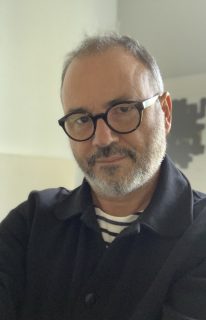
Jean-François Brilhac, is a Professor of Chemical Engineering at the University of Haute-Alsace (UHA, France) since 2001, having previously been Assistant Professor at UHA from 1994 to 2001. He obtained his PhD at the University of Limoges (France) in 1993 and his habilitation from the University of Haute-Alsace in 2000. He teaches industrial risk analysis methods and tools, as well as fire and explosion phenomenology. He is responsible for the Master’s degree in civil security risk management offered jointly by UHA and ENSOSP (École Nationale des Officiers de Sapeurs-Pompiers/ French National School of Fire Officers). He has co-authored over 90 publications in international scientific journals. His research at the Risk Management and Environment Laboratory (UHA LGRE UR 2334) focuses on metals as energy carriers and oxy-combustion processes.
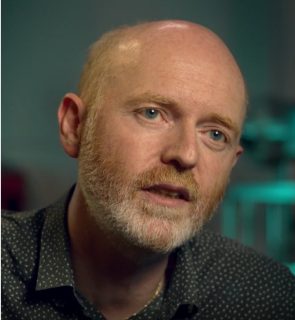
David Honoré, is professor at INSA Rouen Normandie and researcher at CORIA, joint academic laboratory of CNRS, University and INSA in Rouen, France. His research activities concern experimental studies of several combustion concepts for efficiency improvement, reduction of pollutant emissions and for the transition to alternative fuels and decarbonized combustion. For these experimental studies, David Honoré also develops and adapts optical and laser diagnostics for flame characterization in lab-scale and semi-industrial facilities. All this research is done in the framework of collaborative projects funded by EU, ANR (French Agency for Research), PEPR programs, ADEME (French agency for energy management) and in collaboration with several industrial partners. David Honoré is currently involved in several research projects dealing with hydrogen combustion for a wide range of applications from domestic systems to industrial furnaces. David Honoré is also vice-chair of the Comité Français de la FRIF, French committee of the IFRF.

Syntia Metchueng is a research and development engineer at Fives Stein, with over 5 years of experience in the glass industry, including time at Saint-Gobain. Holding a Ph.D. in Energy, she specializes in numerical modelling and optimization of industrial thermal processes. She works on solutions to improve energy efficiency and reduce CO₂ emissions in glass melting and forming processes. Her skills include CFD simulation of glass furnaces and the integration of technologies for decarbonization.
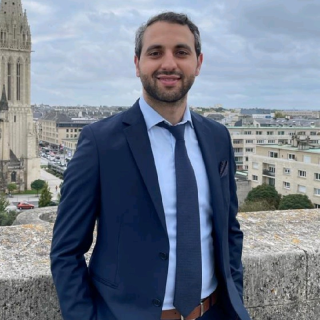
Hassan Mohanna is a combustion and thermal engineer at Fives Stein. He has a Ph.D. in Energetics from CORIA and INSA de Rouen and holds a Master’s degree in Energetics, and Propulsion from Ecole Centrale de Nantes. Currently, he works as an R&D thermal engineer at Fives Stein, focusing on energy efficiency and developing low emission combustion technologies for the steel industry through numerical and experimental approaches. Previously, his research included the use of green and synthetic fuels in internal combustion engines and thermal power plants. He also served as an expert in combustion and thermal processes at Veolia, where he conducted research on combustion and high temperature treatment of solid fuels like biomass. Beside research, Hassan teaches Industrial Combustion at the ENSGTI at the University of Pau.
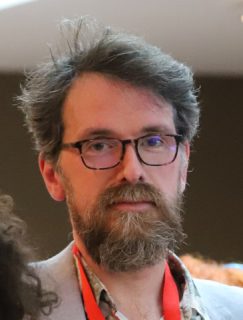
Sébastien Caillat is chief combustion expert at Fives Stein, a supplier of equipment and services to the steel and glass industry, where he develops combustion systems for the steel industry, for reheating furnaces and continuous annealing lines. Fives Stein is part of Fives industrial engineering Group. Prior to that, he was from 1999 to 2014 assistant professor at the École Nationale Supérieure des Mines de Douai, an engineering school in northern France. He holds a master’s degree in aerothermochemistry and a PhD in combustion from the CNRS CORIA laboratory, University of Rouen in Normandy, France, and has been involved in research, development and teaching of industrial combustion and air pollution control. Since 2017, Sébastien is also vice-president of the International Flame Research Foundation (IFRF) and participates in CEN and ISO standardisation groups.
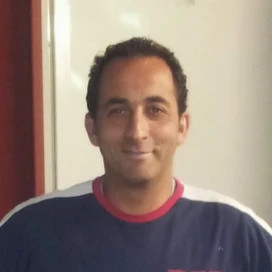
Mohand Amirat is R&D Combustion Technician at Air Liquide Innovation Campus Paris. He has over 25 years of experience working with industrial gases, initially in a filling center at Air Liquide. Twenty years ago, he joined the combustion team. Mohand has extensive experience working on the experimental platform, managing various pilot projects, preparing them for trial campaigns, and maintaining them. He is responsible for installing different burners at the Campus and industrial sites where Air Liquide technologies are tested. Additionally, he has a strong background in measurement systems. In the industry, he has wide experience in glass and non-ferrous processes.
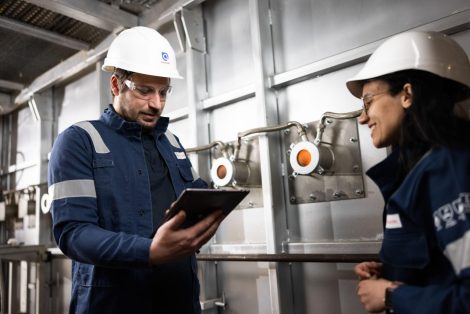
Jean-Baptiste Sénéchal is R&D Combustion Technician at Air Liquide Innovation Campus Paris. He has been working with industrial gases for 13 years, starting in a filling center at Air Liquide. Ten years ago, he joined the combustion team. He is responsible for managing various pilot projects, preparing them for trial campaigns, and maintaining them on the experimental platform at the Campus. He also handles the installation of different Air Liquide burners at the Campus and industrial sites where Air Liquide technologies are tested. Additionally, he prepares all the injection installations needed for the trials. Jean-Baptiste has extensive experience in the cement and non-ferrous processes industries.
Programme
| 18 March 2025 | |
| 08:30 | Welcome & coffee |
| 09:00 | Introduction by Anna Pubill Melsió, Air Liquide & IFRF |
| 09:10 | Overview of Industrial Combustion Processes Louis Ricci, Fives Group |
| 11:00 | Break |
| 11:15 | Hydrogen Production & the Role of Hydrogen in a Sustainable Energy System Luc Jarry, Air Liquide |
| 12:30 | Lunch |
| 14:00 | Safety & Risks Management in Industrial Combustion Systems Lieutenant-colonel Laurent Lecomte, ENSOSP & Jean-François Brilhac, LGRE |
| 16:00 | Break |
| 16:20 | Experimental Platform: Hands-on a Natural Gas/Hydrogen/Air burner David Honoré, CNRS – Coria |
| 17:45 | End of day 1 |
| 19 March 2025 | |
| 08:45 | Welcome & coffee |
| 09:00 | Potentials and Challenges of Hydrogen to Decarbonize the Glass Sector Syntia Metchueng, Fives Stein |
| 09:40 | Using Hydrogen as Fuel to Reduce CO₂ Emissions in Steel Processing Furnaces and Lines Sébastien Caillat & Hassan Mohanna, Fives Stein |
| 10:20 | Break |
| 10:30 | Experimental Platform: Hands-on Demonstration of Hydrogen Usage as a Fuel in Air and Oxygen Flames on the 2 MW Pilot Furnace Mohand Amirat & Jean-Baptiste Sénéchal, Air Liquide |
| 12:30 | Buffet Lunch and discussion |
| 14:00 | Final Summary and Interactive Q&A Session |
| 15:45 | End of the training |
Registration and prices
Registration is opening soon, with the following fees:
| Registration type | Early Bird Fee |
Standard fee |
| IFRF Members |
550 € | 650 € |
| Non-Members | 650 € | 750 € |
The training is limited to 20 participants. The Early Bird deadline is January 17, 2025.
Registration will close once the maximum number of participants is reached or by March 3 March 12 (deadline extended), 2025, whichever comes first. For any questions or request, please do not hesitate to contact administration@ifrf.net.
Book your place now: https://buytickets.at/ifrffrance/1482367
Public transport
The fastest route from Paris is to take the train from Montparnasse station to Versailles-Chantiers on line N at 7:39 (arrival 7:53), 7:58 (arrival 8:11), or 8:09 (arrival 8:25). Then, take bus 6164 to arrive at Air Liquide around 8:30 or 8:45. The bus can be taken from both sides of Versailles station, but the easiest way is to go to the Porte de Buc exit (not the main entrance of the station). Disembark at the “zone d’activité” stop in Les Loges-en-Josas, where the Air Liquide R&D centre is located.
Accommodation
A wide choice of accommodation is available in Paris or Versailles. It is recommended to travel by public transport from Paris (approx. 60-70 min).
Support
This training is organised with the kind support of:
Additional Event Info
Air Liquide Campus Innovation Paris
1, chemin de la Porte des Loges
Les Loges-en-Josas
78350

